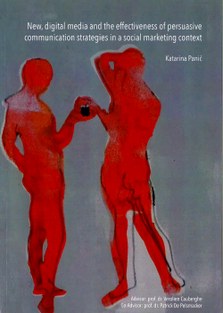Digital Social Marketing
Researcher(s): Katarina Panic
Promotors: Veroline Cauberghe and Patrick De Pelsmacker
Duration: February 2007 to June 2013
Description
Today, there is an enormous shift taking place in the global media landscape. The last two decades are characterized by the ascent of ‘new, digital media’ (e.g. the Internet, smart phones, IDTV, computer games,..). As a result, new advertising formats and techniques arise (like branded websites, advergames, split-screen applications and mobile advertising).
Although research focusing on the effectiveness of these new advertising formats is rising, this is mainly focused on a commercial context. Little or no research can be found regarding the implementation of these new media in social marketing. Academic research can be found on both social marketing and the impact of new media advertising formats, but the combination of the two has not yet been explored.
Therefore, the main research question of this doctoral project is whether new, digital media can contribute to persuasive effectiveness of messages in a social marketing context and how this implementation can have an impact on both affective (attitude, liking, fear, guilt..) and cognitive (processing, recall..) variables. More specific, we investigate if previous theories and techniques used in social advertising, such as the use of fear and guilt appeals, can successfully be combined with message characteristics like interactivity, personalisation and simultaneous exposure.
